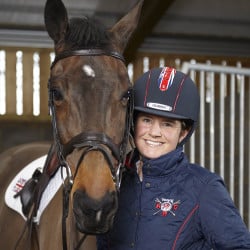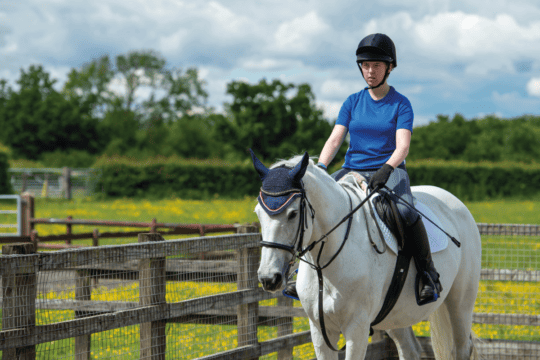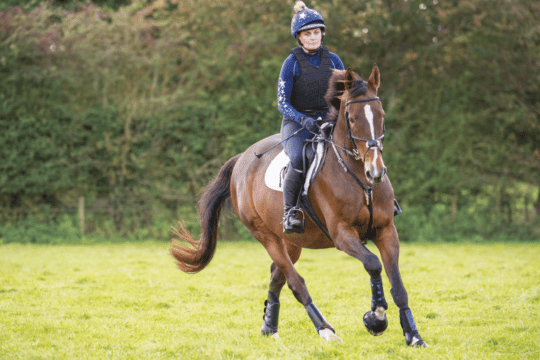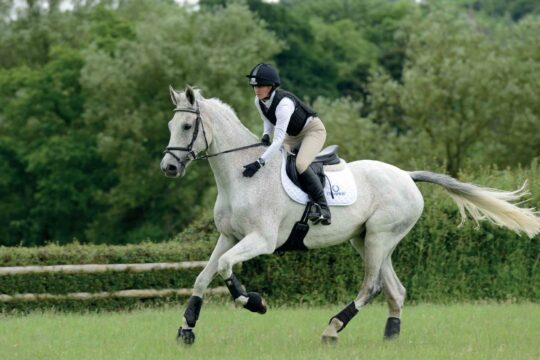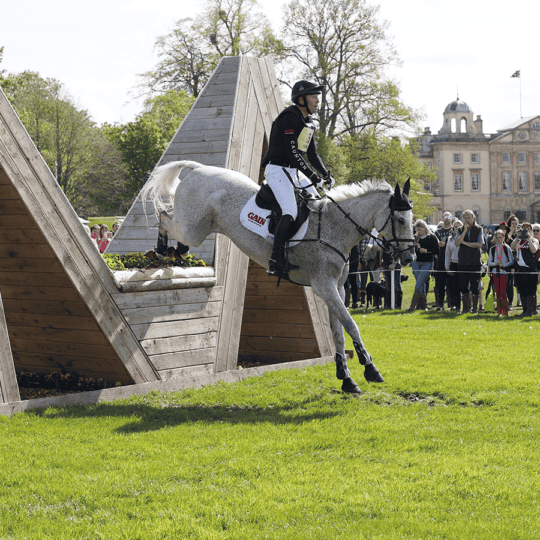If fear of riding in front of others is spoiling enjoyment of your horse, Alison Buttery has some ideas
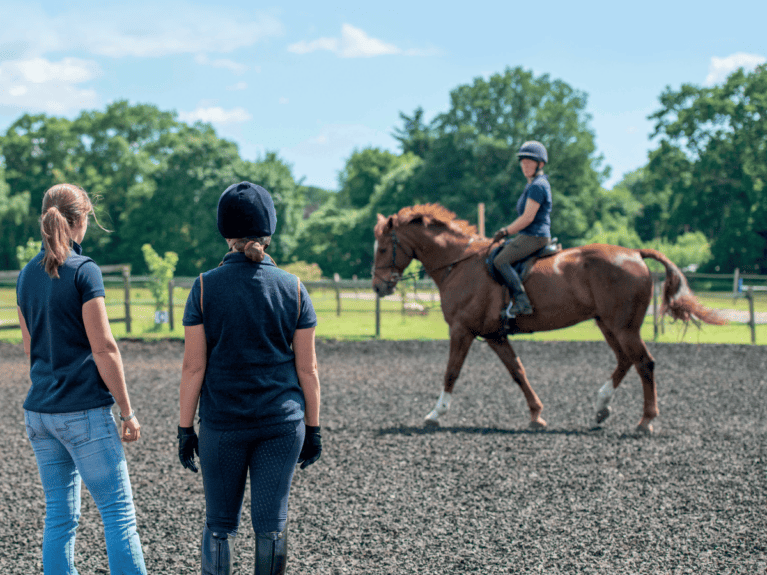
Whether it’s at the yard or in competitions, many people feel uncomfortable riding in front of others. This can be for lots of different reasons and it can even prevent you from having fun with your horse.
There are some common reasons why you might feel anxious about riding in front of others, but with some work you can manage these feelings and enjoy your horse, no matter who’s looking on.
No judgement
When riding in public, whether at the yard or elsewhere, do you believe that others are judging you in some way, causing you self-doubt and anxiety? Do you worry about making mistakes or performing poorly? This can be especially true if you’re competitive or working towards specific goals.
For example, you might imagine the worst-case scenario happening and assume it’s inevitable. This can make your anxiety feel much worse and even prevent you from challenging yourself and trying new things.
Perhaps you’re guilty of mind reading, which is a type of cognitive distortion whereby people believe they know what others are thinking, without any evidence to support their beliefs.
For example, you might assume that others are judging you and thinking or saying negative things about you when, in reality, they’re not paying much attention to you at all. This kind of thinking can be very self-defeating and lead to unnecessary anxiety.
Reassessing your truth
To begin managing a fear of judgement, it can be useful to explore your values around riding and define what’s important to you. This then forms your core purpose, which can help support you during any confidence wobbles.
Your mind doesn’t know the difference between what is real and imagined, so if you believe those other people watching are talking negatively about you, then your mind will take that as truth.
The key thing to remember is that you cannot control what anyone else says, thinks or does. So, allow yourself to spend time, energy and headspace focusing on those things that are under your control – such as how you respond (or otherwise), riding proactively and focusing on your horse’s way of going, as this will help you make positive progress.
Compare and contrast
It’s common to look at others and come to the (flawed) conclusion that they are better in some way, simply because they’re at a different stage in their riding journey. Remember that we only ever see a snapshot of someone else’s world and it’s easy to miss the context of another person’s experience.
While you might not yet have the same level of skill or experience as someone else, you certainly do have the commitment and determination to work hard and develop your riding ability. Skill and experience aren’t limited – they don’t run out. Just because someone else has a wider skill set than you right now doesn’t mean you can’t achieve the same.
Pressure to be perfect
It’s easy to believe that everything has to be perfect and having goals and high expectations of yourself can help you improve and stay motivated. However, when this tips over into perfectionism, it becomes debilitating.
A common symptom of perfectionism is thinking it’s all-or-nothing – when riders see things as being either completely one way or completely the other, with nothing in between .
For example, you might believe you must always perform flawlessly and that mistakes are not allowed. This kind of thinking can be very limiting, as well as unrealistic – some days will be brilliant, while others may not be as good, so it’s important to maintain a broad overview of the situation.
Good enough
A need to present yourself in a particular way to others can actually stop you from doing anything at all. Sometimes, good enough is just that – good enough! No one is perfect. So why chase the impossible? Remember, scoring an elusive 10 in a dressage test doesn’t mean the movement was perfect, but rather that it was excellent.
Did you know?
You can only develop your riding skills and confidence with deliberate practice, by accepting constructive feedback and taking specific, appropriate action to improve.
Don’t take it personally
Some riders have a tendency to take things personally, internalising everything and giving it meaning, even when whatever’s happening isn’t about them.
For example, while warming up at a competition, you might spot other riders looking in your direction and laughing. You immediately assume they’re laughing at you when, in reality, they could be laughing about something completely unrelated. This kind of thinking can make you feel very self-conscious and can cause you to take things more personally than necessary.
Weight of the past
If you’re someone who’s experienced trauma or past negative experiences related to riding in public, you may feel anxious about riding in front of others. Feedback or comments, no matter how well-intentioned, can sometimes cause distress when they’re not received well, having a lasting impact on how much you enjoy what you do with your horse.
The good news is that you don’t have to continue bearing this emotional weight. Gaining support from respected and trusted friends and professionals can help you manage and reframe perceived negative experiences and help you refocus on your next steps.
Fight the fear
There are plenty of ways to become more confident when riding in public and eventually you might even feel excited about it. There are a few different approaches.
Some useful prompts to help you reframe your interpretation of a scenario include asking yourself…
- is this thought helpful to me?
- do the facts of this situation support this thought?
- what might be a more balanced way of thinking about this situation?
- what alternative thought would be more helpful right now?
- what immediate action can I take to help me manage my emotions effectively in the moment?
When you practise this, you become more able to challenge your negative thought patterns, and you can learn to do this while riding – and without anyone else even realising.
Top tip
Challenging your thoughts is a simple technique that can be used to overcome anxiety. The goal is to identify and question the negative and unrealistic thoughts contributing to your anxiety.
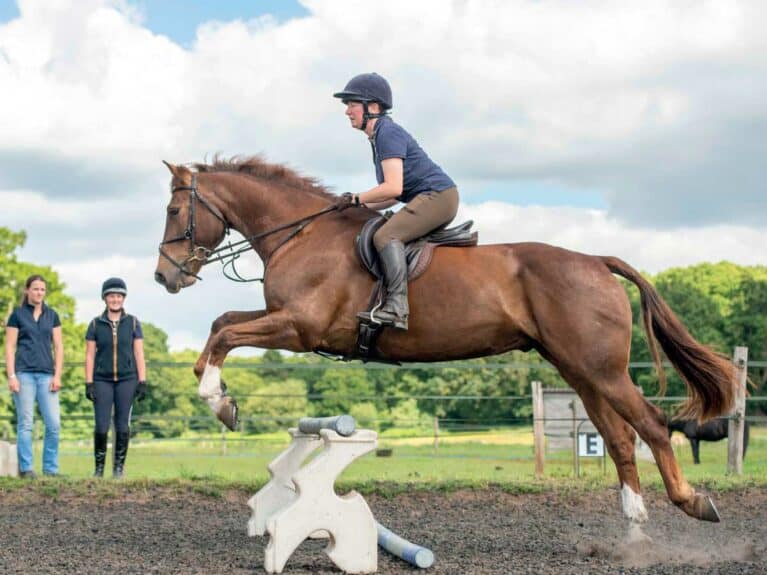
Reframe your thoughts
Reframing is a neuro linguistic programming (NLP) technique that involves changing the way you think about a situation in order to see it in a more positive light.
You can reframe unhelpful thinking by exploring how to create a different meaning of a particular situation or event, or by examining how your thought might actually help you in a certain scenario. For example, instead of fearing everyone is judging you, you could reframe it in terms of how great it is to be stretching your comfort zone and riding in public.
Alternatively, you might do it by thinking your coach or the judge is assessing you and you will value their feedback and comments to help you improve.
Drop anchor
Anchoring is another NLP technique that involves linking a positive emotion (such as confidence) to a specific physical or sensory cue (such as a particular touch or sound). You can use anchoring to help you feel more confident and focused while riding, even in front of other people.
Start small
Exposure therapy involves gradually exposing yourself to the situation that causes you anxiety (in this case, riding in front of others) in a safe and controlled way. This can help you build your tolerance to the situation and learn that your fears are not as bad as you originally thought.
This might be as simple as practising riding at your yard with just one other person nearby or watching, through to hiring a venue to ride when others are around. Start small and build up gradually so that you can increase your confidence. Focus on you and your horse, and practise bringing your attention back to yourself and your horse if you find you’re distracted.
Mindfulness is another technique that helps people stay present in the moment to reduce their overall stress levels. Practising mindfulness can help you remain focused on the task in hand, improve your ability to direct your attention and reduce the impact of distractions, negative thoughts, and emotions.
Thoughtful therapy
There are many different forms of therapy that help people change their negative thought patterns and behaviours. A therapist can work with you to identify and challenge the cognitive distortions and old psychological programming that have been contributing to your fear of judgement and they will help you learn and implement strategies to cope with and overcome your mindset blocks.
Top tip
Finding simple, practical ways to trigger positive emotions and become grounded in the present is something every rider can do.
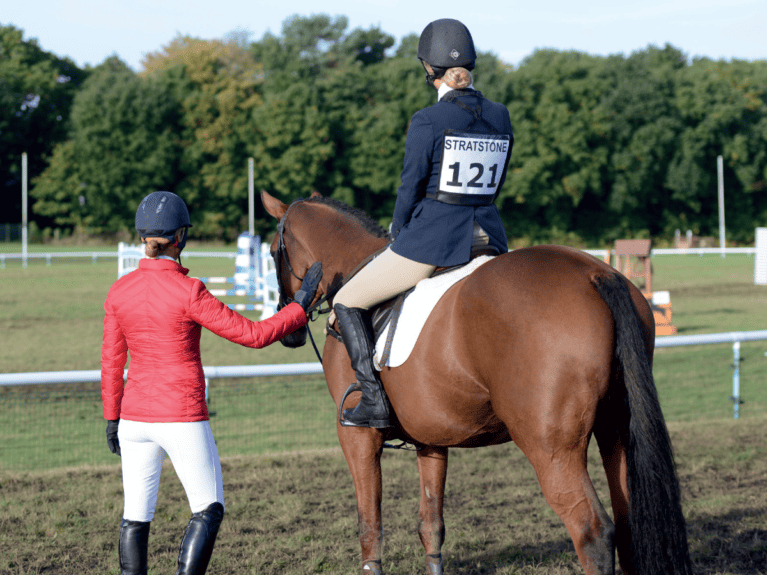
Did you know?
Different techniques work for different people, so it may take some experimentation to find what works best for you. Working with a therapist who specialises in equestrian mindset and confidence coaching can also help.
When you no longer have anxiety or fear around riding your horse in front of other people, you will likely feel a new sense of freedom and enjoyment. You’ll be able to ride with increased confidence and go on more adventures with your horse. This can lead to a greater sense of pride and accomplishment.
Without the burden of anxiety and self-consciousness, you can relax and enjoy the experience of riding, which can make it feel more fun and less like a chore or a source of stress. You may even feel more capable of facing other challenges in the future.
So next time you’re worried about riding in front of other people, test some of these strategies to see what works best for you and your horse. Who knows? You might even learn to enjoy it.
Our expert – Alison Buttery is a certified mindset and confidence coach, a BHS APC senior coach and an experienced rider, who specialises in helping riders overcome their nerves. She’s also the Founder of The Everyday Equestrian.

